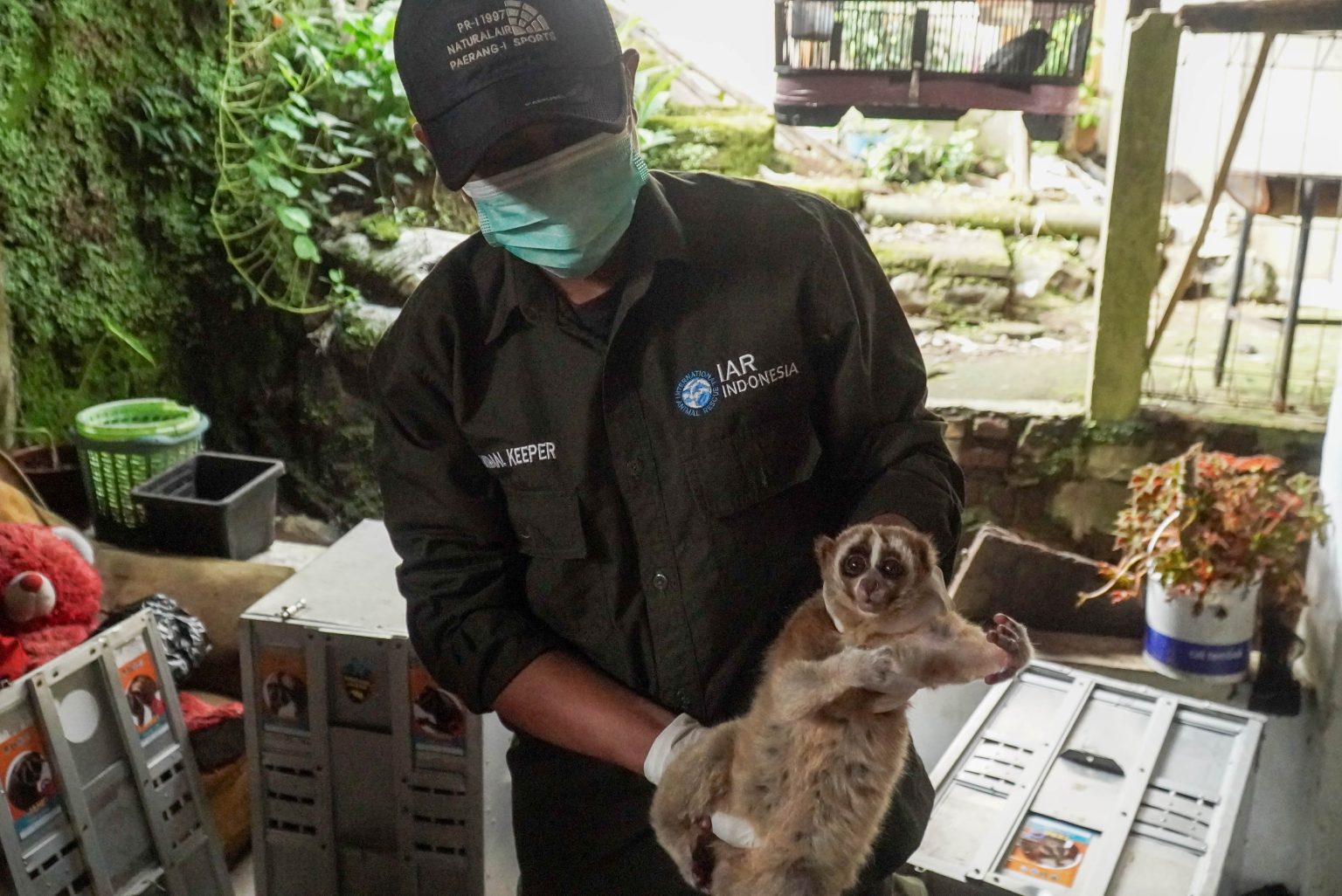Global Awareness Day Highlights Efforts to Combat the Illegal Wildlife Trade and Protect Endangered Primates
As the world marks International Slow Loris Day on September 13th, International Animal Rescue (IAR) is thrilled to share groundbreaking conservation achievements from its partner organisation, YIARI. The event seeks to shine a spotlight on the ongoing battle against the illegal wildlife trade while celebrating the remarkable strides made in rescuing, rehabilitating, and reintroducing slow lorises into their natural habitats.
Slow lorises, particularly the Critically Endangered Javan slow loris and the Endangered greater slow loris, are among the most frequently trafficked species, prized for their small size and adorable appearance. However, the illegal pet trade has severely impacted their survival, threatening these nocturnal primates with extinction. International Slow Loris Day aims to raise awareness of their plight and inspire action worldwide to safeguard their future.
The Triangle Approach to Conservation
Over the past ten years, YIARI, with the support of IAR, has implemented a pioneering “Triangle Approach” to address the illegal trade of slow lorises. This innovative strategy tackles the issue from three critical angles: enhancing law enforcement, creating sanctuaries for confiscated animals, and promoting education through awareness campaigns. The impact has been significant, with over 1,000 slow lorises rescued, 670 of which have been successfully reintroduced into the wild.
IAR’s CEO, Gavin Bruce, remarked: “Our partnership with YIARI has brought about tangible progress in fighting the illegal trade of slow lorises. However, our efforts are far from over—this International Slow Loris Day, we aim to heighten awareness and rally even greater support to safeguard these extraordinary creatures and the environments they call home. The success we’ve seen proves that change is possible when we come together as a global community.”
Conservation Success in Sumatra
Beyond Java, YIARI’s work has expanded into Sumatra, focusing on the Batutegi Forest, an ideal location for rehabilitating and releasing Sumatran slow lorises. Since 2008, the team has worked closely with communities on the edge of the forest, introducing sustainable farming techniques to protect the environment while improving local agricultural output. This collaboration has significantly reduced forest degradation, and there has been a noticeable decrease in illegal activities in the region.
YIARI has also involved local children in educational initiatives focused on the environment, nurturing a stronger bond with nature and encouraging future generations to prioritise conservation efforts.
Recent Release Efforts
In July 2024, YIARI, in partnership with local forestry agencies in West Java and Sumatra, successfully reintroduced 28 primates into the wild within Bukit Barisan Selatan National Park. The release featured 20 long-tailed macaques, four pig-tailed macaques, and four Javan slow lorises, each having completed a comprehensive rehabilitation process. Before their release, the animals were placed in habituation cages to help them acclimatise to their natural environment.
Commenting on the success of these efforts, Gavin Bruce emphasised: “The involvement of local communities was crucial to the success of this release. Their commitment, along with the generous support of our donors, has given these animals a new lease of life in their natural habitat.”
A Global Call to Action
International Slow Loris Day is not just a celebration of progress—it is a rallying cry for global action. By raising awareness of the illegal wildlife trade, habitat destruction, and the importance of treating animals ethically, IAR and YIARI hope to drive further positive change for slow lorises and the ecosystems they inhabit.
Through our partnership with YIARI, we are safeguarding much more than a single species, said Bruce. Our mission to protect slow lorises is closely linked with conserving entire ecosystems and promoting a sustainable future for our planet. We encourage everyone to join this cause—whether through donations, advocacy, or education—together, we can create a brighter future for these remarkable animals.
